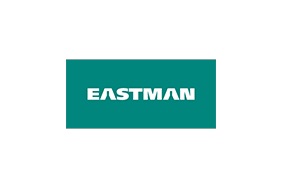Keeping Finland’s Airports Safe and Sustainable
Eastman Clearway® de-icer is Finavia’s solution for reliable winter travel
Published 06-12-24
Submitted by Eastman

Finland’s winter weather as early as October and ends as late as April, making snow and ice a challenge for Finavia, the company that manages the country’s airports. Another challenge is protecting Finland’s environment, especially water resources, from pollution.
“Safety is our top priority,” said Heikki Heinijoki, head of airport engineering for Finavia. “We must provide safe air travel both on ground and in the sky, and we also need to protect the safety of Finland’s natural resources. We need products during extreme winter weather that ensure both.”
Finavia uses Eastman Clearway® de-icer to keep runways and taxiways safe to operate throughout winter at its 16 airports. In addition to being a trusted de-icer, Clearway also aligns with Finland and Finavia’s commitment to the environment because of its biodegradability.
"When de-icer is applied to runways and taxiways in winter weather, the ice and snow melts and de-icer ends up in surface waters,” said Ingo Stork, Eastman sales manager. “That’s why there’s a focus on environmental friendliness that won’t harm the surface waters or organisms living in the water.”

Finland’s sustainable development goals aim to prevent water pollution, curb industrial emissions and clean polluted waterways. Finavia also has sustainable air traffic goals, including reaching net-zero emissions by 2025.
Clearway has been known for its biodegradability and low aquatic toxicity for more than 30 years. It meets all relevant environmental and ecological requirements and carries the Blue Angel Ecolabel, certifying its environmental friendliness. Eastman’s team also tests to ensure Clearway’s limited impact on the environment.
“Air travel is crucial, and we can’t risk safety or delays caused by winter weather,” said Heinijoki. “We know we can trust Eastman’s dedicated team, support and product. That’s why we’ve used Clearway de-icer for many years. We know our flight schedules will stay on track while using a product that helps us progress toward our sustainability goals.”

Eastman changed Clearway’s production process from heavy fuel oil to natural gas, so its carbon footprint is reduced. Lowering carbon dioxide emissions is challenging for the air travel industry because planes emit the gas, but Finavia has on-ground ways to improve the carbon footprint, including using Clearway.
Clearway is manufactured at Eastman’s site in Oulu, Finland. Finavia also gets support from Eastman experts. Everything from supply logistics to environmental testing is provided by Eastman to ensure Finavia’s runways and taxiways are clear all winter.
“This is very collaborative work,” said Milena Costa, Eastman customer service representative. “There’s a lot of people involved. We have a fantastic team at the plant in Oulu, and they are the stars of the show.”

Eastman
Eastman
Founded in 1920, Eastman is a global specialty materials company that produces a broad range of products found in items people use every day. With the purpose of enhancing the quality of life in a material way, Eastman works with customers to deliver innovative products and solutions while maintaining a commitment to safety and sustainability. The company’s innovation-driven growth model takes advantage of world-class technology platforms, deep customer engagement, and differentiated application development to grow its leading positions in attractive end markets such as transportation, building and construction, and consumables. As a globally inclusive and diverse company, Eastman employs approximately 14,000 people around the world and serves customers in more than 100 countries. The company had 2023 revenue of approximately $9.2 billion and is headquartered in Kingsport, Tennessee, USA.
About Eastman in the circular economy: In 2019, Eastman became the first company to begin commercial-scale chemical recycling for a broad set of waste plastics that would otherwise be landfilled or, worse, wind up in the environment. Eastman's molecular recycling technologies can process waste plastics traditional mechanical recycling methods cannot—including polyesters, polypropylene, polyethylene, and polystyrene—derived from a variety of sources, including single-use plastics, textiles, and carpet. These technologies provide a true circular solution of endless recycling for materials, allowing them to be reused repeatedly.
To learn more about how we’re working to make a more circular economy visit eastman.eco.
More from Eastman

